Alberta
International Energy Agency boss prefers oil and gas from Canada
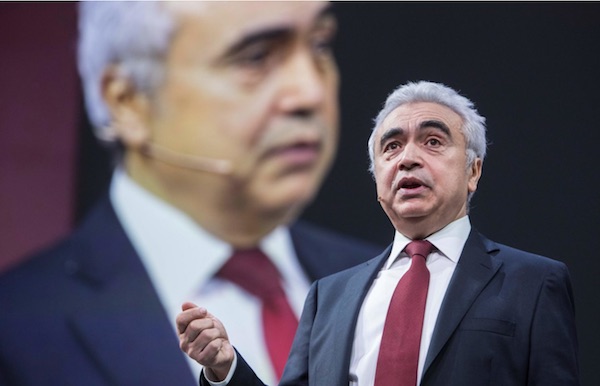
This article is submitted by Canadian Energy Centre Ltd.
Producers building a competitive advantage with ESG performance
The head of the International Energy Agency says Canada is a preferred global oil and gas supplier and should take steps to ensure it remains so in the decades to come.
IEA executive director Fatih Birol is a big advocate for net zero targets, but he knows that even as the world transforms its energy systems, oil and gas will be around for a long time.
He’d prefer the supply comes from “good partners” like Canada, Birol said on Jan. 13 during the virtual launch of the IEA’s Canada 2022 report.
The Paris-based IEA is a world-recognized authority on energy supply, demand and policy.
“Canada has been a cornerstone of global energy markets, a reliable partner, for years,” Birol said.
“We will still need oil and gas for years to come… I prefer that oil is produced by countries… like Canada who want to reduce the emissions of oil and gas.”
World oil consumption has returned near pre-pandemic levels, and natural gas demand surpassed levels pre-COVID last year, according to IEA data. Consumption of both is expected to continue rising even as more renewable energy sources come online.
In Europe, energy customers are feeling the pain of dealing with an unreliable supplier.
Birol said Europe’s natural gas crisis is in part because it depends on Russia for nearly half its natural gas imports. As a result, Russia’s policies “have a huge impact on the European energy mix.”
Right now, Russia has unused capacity to send the equivalent of a full LNG vessel every day to help reduce natural gas prices in Europe, amid a standoff between Moscow and the West over Ukraine, Birol told reporters last week.
“[The] world needs reliable partners,” he said. Canada’s first LNG exports are expected in 2025 and forecast to rise steadily thereafter, the IEA noted in its report.
Canada is the world’s fourth-largest producer of oil and natural gas and home to the third-largest oil reserves, which “creates employment for Canadians and secure and reliable oil and gas for both domestic and global markets,” the IEA said.
Remaining competitive in global oil and gas markets – and ensuring the sector remains a major driver of the Canadian economy beyond 2050 – requires emissions reductions, the IEA said, praising work that has been done already.
Canada is not only stable and reliable, but its LNG supply will also be cleaner than competitors, the IEA said.
The LNG Canada project that is under construction in B.C. is expected to have the lowest carbon emissions intensity of any large LNG facility currently operating in the world, at 60 per cent lower than the global average.
Other proposed LNG projects in Canada plan to use clean, renewable hydroelectricity to power operations, resulting in emissions profiles up to 90 per cent lower than global competitors, the IEA said.
Analysts praised the oil and gas industry’s “strong track record” of reducing emissions intensity, in the oil sands by 32 per cent since 1990 and by 13 per cent for natural gas production since 2010. A further reduction of up to 27 per cent is expected in the oil sands by 2030.
The success is in part because of large investments in clean technology and environmental protection, the IEA said.
Oil and gas companies in Canada together spend an average of $1 billion per year on energy cleantech, in addition to billions in environmental protection.
In 2018, oil and gas companies also invested $3.6 billion in environmental protection initiatives – by far the largest environmental protection spend of any industry in the country, the IEA said.
“Canadian oil and natural gas producers are leveraging their improving environmental, social and governance performance and Canada’s stringent environmental regulations to build a global competitive advantage” as interest in cleaner fuels and environmental sustainability grows.
Alberta
Alberta mother accuses health agency of trying to vaccinate son against her wishes
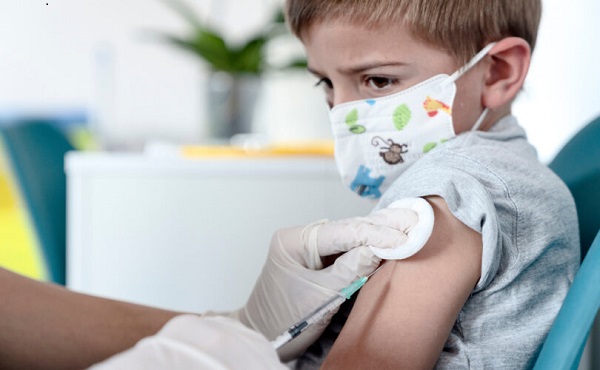
From LifeSiteNews
Alberta Health Services has been accused of attempting to vaccinate a child in school against his parent’s wishes.
On November 6, Alberta Health Services staffers visited Edmonton Hardisty School where they reportedly attempted to vaccinate a grade 6 student despite his parents signing a form stating that they did not wish for him to receive the vaccines.
“It is clear they do not prioritize parental rights, and in not doing so, they traumatize students,” the boy’s mother Kerri Findling told the Counter Signal.
During the school visit, AHS planned to vaccinate sixth graders with the HPV and hepatitis B vaccines. Notably, both HPV and hepatitis B are vaccines given to prevent diseases normally transmitted sexually.
Among the chief concerns about the HPV vaccine has been the high number of adverse reactions reported after taking it, including a case where a 16 year-old Australian girl was made infertile due to the vaccine.
Additionally, in 2008, the U.S. Food and Drug Administration received reports of 28 deaths associated with the HPV vaccine. Among the 6,723 adverse reactions reported that year, 142 were deemed life-threatening and 1,061 were considered serious.
Children whose parents had written “refused” on their forms were supposed to return to the classroom when the rest of the class was called into the vaccination area.
However, in this case, Findling alleged that AHS staffers told her son to proceed to the vaccination area, despite seeing that she had written “refused” on his form.
When the boy asked if he could return to the classroom, as he was certain his parents did not intend for him to receive the shots, the staff reportedly said “no.” However, he chose to return to the classroom anyway.
Shortly after, he was called into the office and taken back to the vaccination area. Findling said that her son then left the school building and braved the sub-zero temperatures to call his parents.
Following his parents’ arrival at the school, AHS claimed the incident was a misunderstanding due to a “new hire,” attesting that the mistake would have been caught before their son was vaccinated.
“If a student leaves the vaccination center without receiving the vaccine, it should be up to the parents to get the vaccine at a different time, if they so desire, not the school to enforce vaccination on behalf of AHS,” Findling declared.
Findling’s story comes just a few months after Alberta Premier Danielle Smith promised a new Bill of Rights affirming “God-given” parental authority over children.
A draft version of a forthcoming Alberta Bill of Rights provided to LifeSiteNews includes a provision beefing up parental rights, declaring the “freedom of parents to make informed decisions concerning the health, education, welfare and upbringing of their children.”
Alberta
Alberta’s fiscal update projects budget surplus, but fiscal fortunes could quickly turn
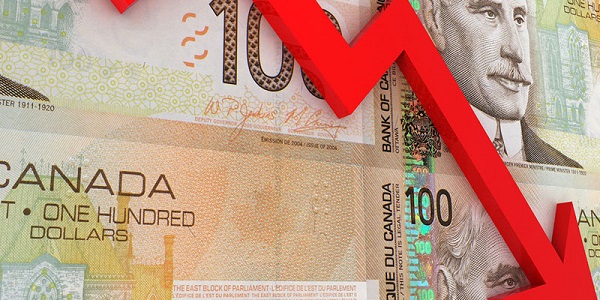
From the Fraser Institute
By Tegan Hill
According to the recent mid-year update tabled Thursday, the Smith government projects a $4.6 billion surplus in 2024/25, up from the $2.9 billion surplus projected just a few months ago. Despite the good news, Premier Smith must reduce spending to avoid budget deficits.
The fiscal update projects resource revenue of $20.3 billion in 2024/25. Today’s relatively high—but very volatile—resource revenue (including oil and gas royalties) is helping finance today’s spending and maintain a balanced budget. But it will not last forever.
For perspective, in just the last decade the Alberta government’s annual resource revenue has been as low as $2.8 billion (2015/16) and as high as $25.2 billion (2022/23).
And while the resource revenue rollercoaster is currently in Alberta’s favor, Finance Minister Nate Horner acknowledges that “risks are on the rise” as oil prices have dropped considerably and forecasters are projecting downward pressure on prices—all of which impacts resource revenue.
In fact, the government’s own estimates show a $1 change in oil prices results in an estimated $630 million revenue swing. So while the Smith government plans to maintain a surplus in 2024/25, a small change in oil prices could quickly plunge Alberta back into deficit. Premier Smith has warned that her government may fall into a budget deficit this fiscal year.
This should come as no surprise. Alberta’s been on the resource revenue rollercoaster for decades. Successive governments have increased spending during the good times of high resource revenue, but failed to rein in spending when resource revenues fell.
Previous research has shown that, in Alberta, a $1 increase in resource revenue is associated with an estimated 56-cent increase in program spending the following fiscal year (on a per-person, inflation-adjusted basis). However, a decline in resource revenue is not similarly associated with a reduction in program spending. This pattern has led to historically high levels of government spending—and budget deficits—even in more recent years.
Consider this: If this fiscal year the Smith government received an average level of resource revenue (based on levels over the last 10 years), it would receive approximately $13,000 per Albertan. Yet the government plans to spend nearly $15,000 per Albertan this fiscal year (after adjusting for inflation). That’s a huge gap of roughly $2,000—and it means the government is continuing to take big risks with the provincial budget.
Of course, if the government falls back into deficit there are implications for everyday Albertans.
When the government runs a deficit, it accumulates debt, which Albertans must pay to service. In 2024/25, the government’s debt interest payments will cost each Albertan nearly $650. That’s largely because, despite running surpluses over the last few years, Albertans are still paying for debt accumulated during the most recent string of deficits from 2008/09 to 2020/21 (excluding 2014/15), which only ended when the government enjoyed an unexpected windfall in resource revenue in 2021/22.
According to Thursday’s mid-year fiscal update, Alberta’s finances continue to be at risk. To avoid deficits, the Smith government should meaningfully reduce spending so that it’s aligned with more reliable, stable levels of revenue.
Author:
-

 Business2 days ago
Business2 days agoCBC’s business model is trapped in a very dark place
-
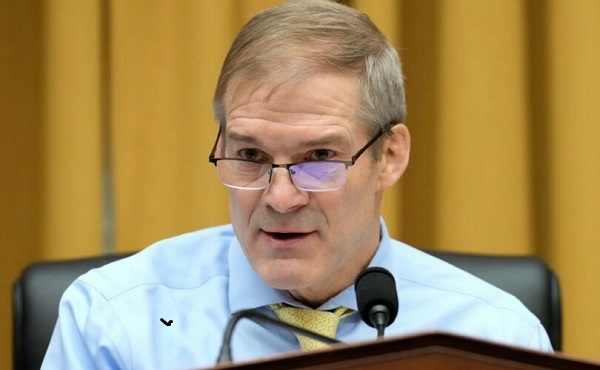
 Censorship Industrial Complex2 days ago
Censorship Industrial Complex2 days agoCongressional investigation into authors of ‘Disinformation Dozen’ intensifies
-

 Alberta2 days ago
Alberta2 days agoAlberta government announces review of Trudeau’s euthanasia regime
-

 Alberta1 day ago
Alberta1 day agoAlberta fiscal update: second quarter is outstanding, challenges ahead
-
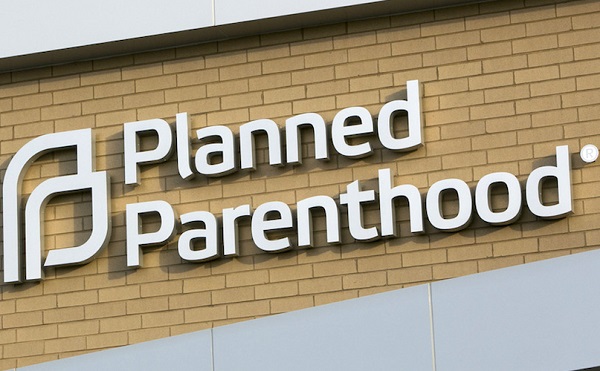
 Business1 day ago
Business1 day agoTrump’s government efficiency department plans to cut $500 Billion in unauthorized expenditures, including funding for Planned Parenthood
-

 Brownstone Institute17 hours ago
Brownstone Institute17 hours agoFirst Amendment Blues
-
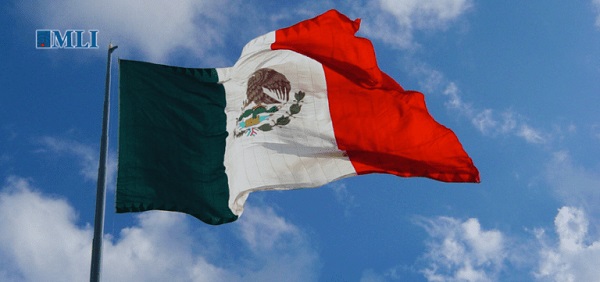
 Crime1 day ago
Crime1 day agoMexican cartels are a direct threat to Canada’s public safety, and the future of North American trade
-

 Business20 hours ago
Business20 hours agoDEI gone?: GOP lawmakers prep to clean house in federal government







